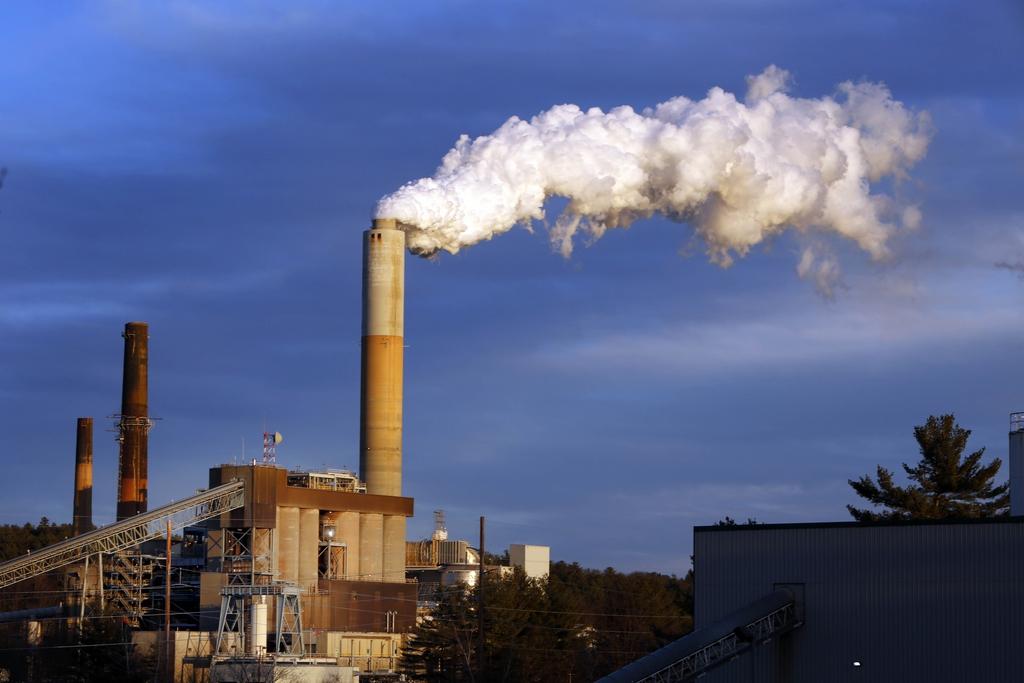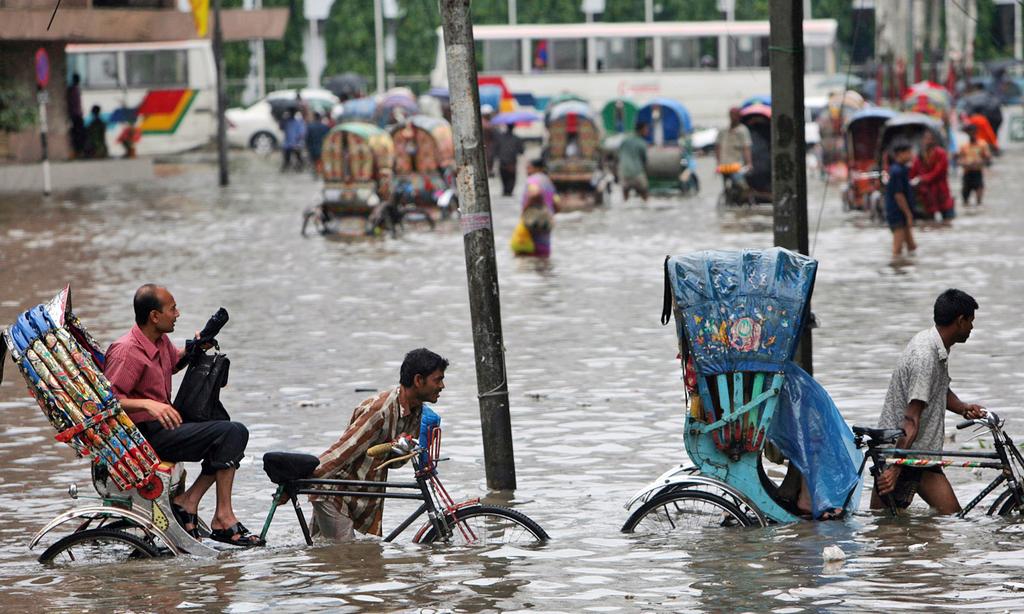
Geneva negotiators prepare road to climate pact in Paris

Negotiators from 194 countries have prepared the draft of a deal in Geneva that would set national targets to cut heat-trapping carbon emissions.
For the Swiss, who have hosted the week-long Geneva negotiations, the 86-page draft text posted FridayExternal link could be seen as a hopeful though somewhat muted sign of a breakthrough – or at least a thaw – in the glacially-paced UN climate talks. The Swiss delegation is led by Franz Xaver Perrez, the environment ministry’s Ambassador for the Environment.
“My assessment of the Geneva outcome is mixed. First, we are glad that the meeting in Geneva succeeded to achieve the minimum that was necessary: to agree on a common negotiation text, the so-called Geneva text,” Perrez told swissinfo.ch on Friday.
“Many delegations commended the ‘Geneva spirit’ which has allowed us to agree on a negotiation text,” he said. “However, on the other hand, we would have liked to advance the work here in Geneva more, to have a text that is not only reflecting all the different views, but a text that is also reflecting the emergence of a consensus. This is not yet achieved, there is therefore still a lot of work to be done up to Paris.”
Switzerland has been actively campaigning for a global climate regime that ensures there will be adequate reductions of industrial gases that trap heat in the atmosphere like a greenhouse.

More
Behind the scenes at the Geneva climate talks
Slowing the warming, speeding the action
World governments have already agreed that global temperatures should not rise more than 2 degrees Celsius compared to pre-industrial times, and Switzerland pledged to help that goalExternal link by reducing its domestic greenhouse gas emissions – mostly fossil thermal and motor fuels – by at least 20% below 1990 levels by 2020.
The Geneva talks have been led by the UNFCCC, the UN secretariat based in Bonn, Germany, which has 196 parties – including virtually all of the world’s nations – and is the parent treaty of the 1997 Kyoto Protocol for cutting carbon emissions.
Disputes over mandatory versus voluntary actions, and whether there should be tough consequences for inaction, have long delayed action. The European Union wants a legally binding instrumentExternal link, while other key players such as the United States are seeking something other than a legal straitjacket that stands virtually no chance of being adopted by lawmakers.
A key issue is how to divide up responsibility for cutting emissions among rich countries like the US and Japan and major developing economies such as China and India. But many argue the benefits of cleaner energy outweigh the costs of converting to new technologies.
The draft deal emerging from Geneva, which is supposed to be adopted in Paris in December, aims to make the emissions cuts that scientists say are needed to avoid the most dangerous impacts of climate change.
Another key issue is how to pay for cutbacks, preparations and adaptations for climate change. Many of the developing nations, which argue their inhabitants are the least responsible for creating the problem of an overheating planet, want rich countries to help them grow using cleaner industries. Rich countries have previously pledged to give poorer nations $100 billion (CHF93 billion) in annual climate aid by 2020.
Getting to two degrees
The UN climate science panelExternal link has concluded the world must reduce emissions by 40% to 70% by 2050 if it wants to have a two-thirds chance of staying below the two degrees Celsius threshold.
The UN’s climate chief, Christina Figueres, described the draft text as an important milestone toward a new climate deal that “contains the views and concerns of all countries.” It is based on elements from talks in Lima, Peru last year.
She has repeatedly emphasised that the world economy will be at risk without a Paris deal to lower heat-trapping carbon emissions from fossil fuel burning – and to send a signal to the markets of the path ahead by establishing a firm price on carbon.
Figueres said Friday the negotiating text “alerts capitals to the fact that a legal instrument could be adopted in Paris. It does not, however, set this possibility in stone – it merely opens the door for this possibility.” And whether or not it is legally binding, and to what degree, she said, “will only be clarified later in the year.”
The next step, she added, is for negotiators to narrow options and reach consensus when they meet next in Bonn, Germany in June. Ministerial-level meetings to help hash out a climate pact also are planned throughout the year on the sidelines of other gatherings.

In compliance with the JTI standards
More: SWI swissinfo.ch certified by the Journalism Trust Initiative


























You can find an overview of ongoing debates with our journalists here . Please join us!
If you want to start a conversation about a topic raised in this article or want to report factual errors, email us at english@swissinfo.ch.